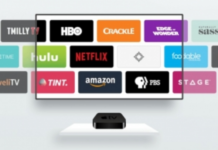New Delhi– Nearly 92 per cent talent professionals in India consider ‘People Analytics’ to pave the way for the future of HR and recruiting while 95 per cent of them believe employee experience will shape the future of HR in the coming years, a new report by Microsoft-owned LinkedIn said on Thursday.
The employee experience (EX) is the ‘in’ thing which represents a wider view of the traditional human resource function with empathy is at its core.
Focusing on EX increases retention and productivity, meets high expectations of younger workers, and attracts more candidates in this tight labour market, the findings showed.
While 77 per cent of talent professionals in India said they’re increasingly focused on employee experience to increase employee retention, 44 per cent felt the lack of leadership’s focus and prioritization is a significant barrier to improving a company’s employee experience.
“Top areas under employee experience that need fixing however are compensation and benefits and an increasing need for simplified administrative processes,” added the 10th annual edition of the LinkedIn ‘Global Talent Trends 2020’ report.
The report looked at survey results from 7,000 talent professionals, platform data, and interviews with leaders to provide insight into the key topics impacting HR leaders today.
This year’s four key trends are: Employee Experience, People Analytics, Internal Recruiting and Multi-Generational Workforce.
“Meaningful
insights will inform talent decisions at every level of the recruiting
cycle, and therefore understanding and capitalizing on analytics is
quickly becoming a must-have skill in HR,” the findings showed.
Organizations are rediscovering how cost-effective it is to recruit their own people.
While 96 per cent talent professionals are placing their bets on internal recruiting to shape the future of HR and recruiting in India, 83 per cent felt internal recruiting improves employee retention.
“Seventy per cent of talent professionals in India say employees find internal opportunities listed on an internal job board,” the report mentioned.
Carving out new career paths, offering flexible benefits, developing longevity strategies and promoting informal interactions across generations are some of the ways in which companies are driving a radical explosion in workforce age diversity.
“While all generations value companies with purposeful missions, it’s Boomers who are most likely to call it a top priority. Gen Z, meanwhile, is most likely to value training — 36 per cent call it a top factor when considering a new job,” the LinkedIn report mentioned.
While 80 per cent of talent professionals in India agreed that having a diversity of generations is an important factor in recruitment efforts, 74 per cent said their company will focus on recruiting millennials in the next five years. (IANS)







